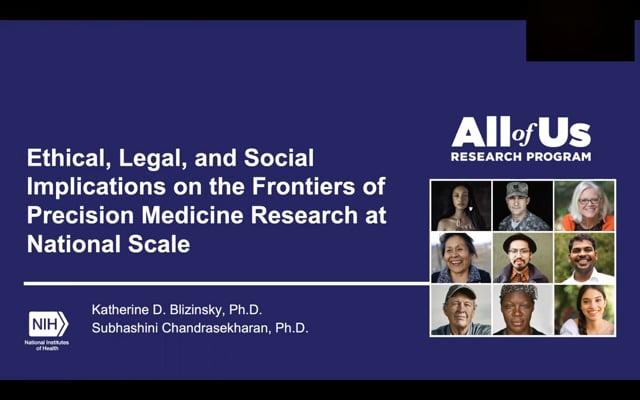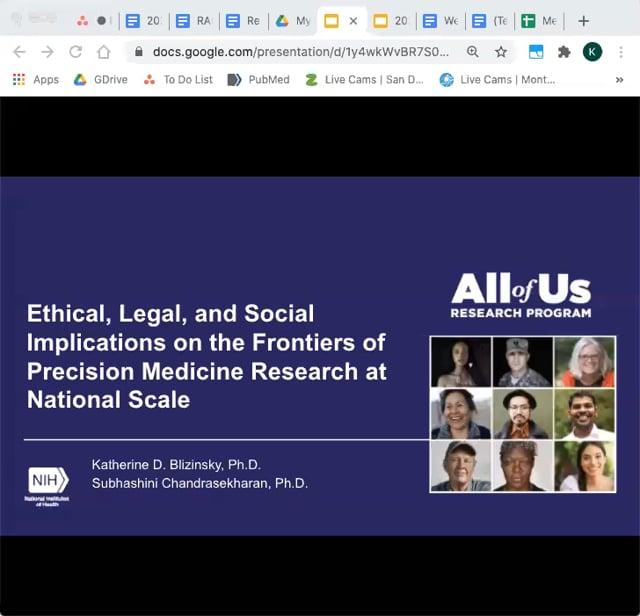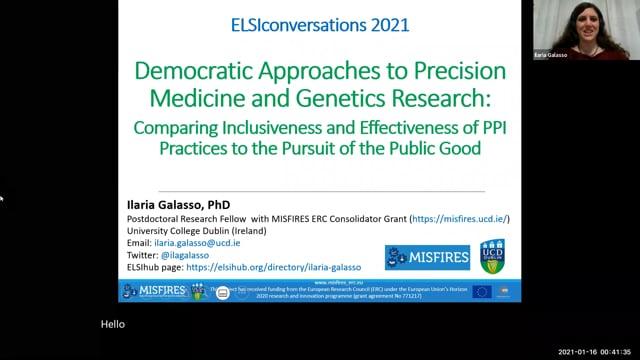A Qualitative Study to Develop a Privacy and Nondiscrimination Best Practice Framework for Personalized Wellness Programs
Rachele Hendricks-Sturrup, DHSc, MSc, MA - Harvard Pilgrim Health Care Institute and Harvard Medical School
ELSIconversations - February 26, 2021
Employers are increasingly partnering with direct-to-consumer (DTC) genetic testing companies and other unregulated companies that generate, collect, and process sensitive health information to offer personalized wellness products as a workplace wellness benefit. Countering claims about the benefits of these programs are concerns about employee health privacy and discrimination based on health factors or status. These concerns are legally grounded in the fact that 1) employers and DTC genetic testing companies are not covered under the Health Insurance Portability and Accountability Act, and 2) the United States (US) Supreme Court, in AARP v. EEOC, rejected regulations around wellness program incentive limits under the Genetic Information Nondiscrimination Act and Americans with Disabilities Act. This study qualitatively explored the concerns of public and legislative stakeholders to determine themes and best practices to overcome those concerns. Qualitative analysis was performed using NVivo software. A second coder was used to assess interrater reliability. Key themes centered on promoting a culture of trust and wellness. Best policy practices within these themes were : 1) have transparent and prominent data standards and practices, 2) uphold employee privacy and nondiscrimination standards, 3) remove penalties, 4) reward healthy behavior, and 5) make program benefits accessible. Employers, DTC genetic testing companies, and policymakers should consider these themes and best practices in the current absence of federal regulations on nondiscriminatory workplace wellness programs.
Tags
Videos in Series
-
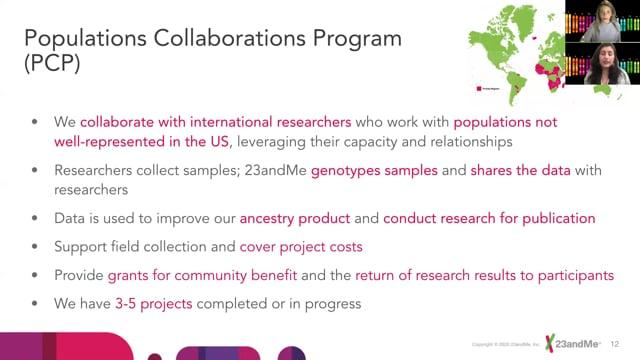
ELSIconversations 1: ELSIcon2020 - A Prospectus on Ethical Issues in the Context of Collaborations Between Academic and Non-academic Institutions on Genetics Research
-
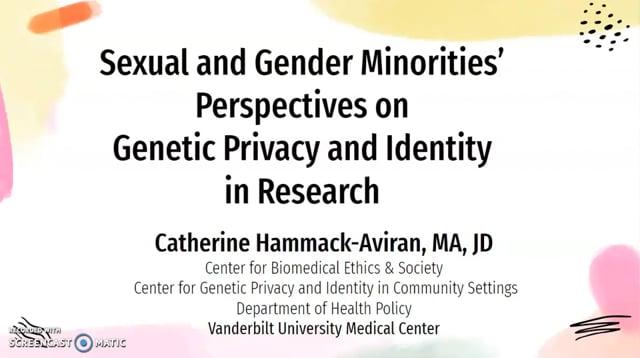
ELSIconversations 1: ELSIcon2020 - Sexual and Gender Minorities’ Perspectives on Genetic Privacy and Identity in Research
-
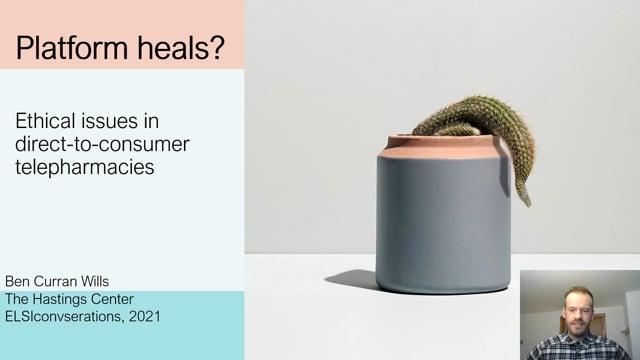
ELSIconversations 1: ELSIcon2020 - Platform Heals? Ethical Issues in Direct-to-consumer Telepharmacies
-
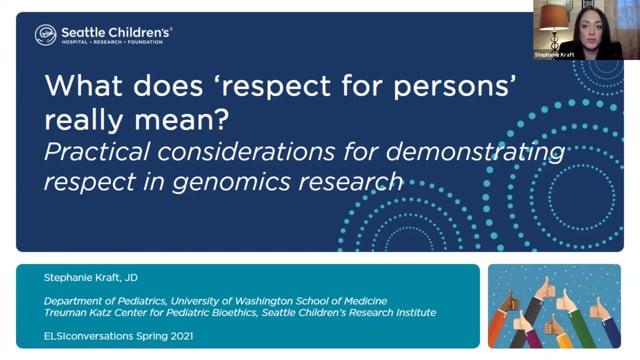
ELSIconversations 1: ELSIcon2020 - What does ‘respect for persons’ really mean? Practical considerations for demonstrating respect in genomics research
-
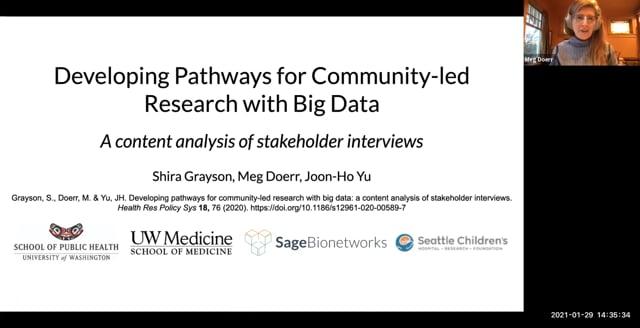
ELSIconversations 1: ELSIcon2020 - Developing Pathways for Community-led Research with Big Data: A Content Analysis of Stakeholder Interviews
-
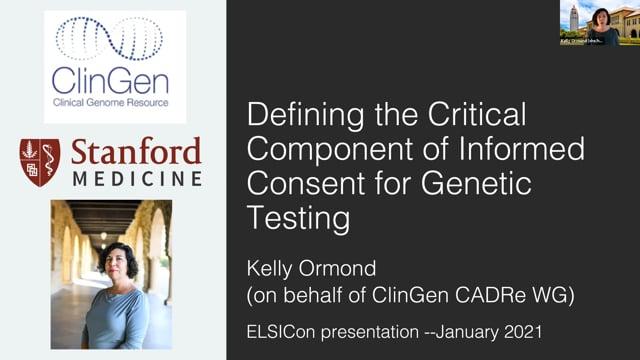
ELSIconversations 1: ELSIcon2020 - Defining the Critical Components of Informed Consent for Genetic Testing
-
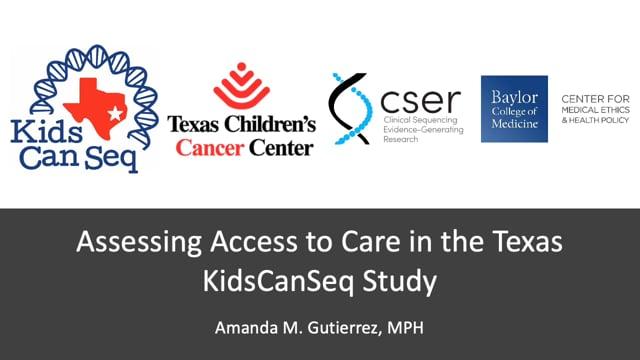
ELSIconversations 1: ELSIcon2020 - Part 2. Assessing Access to Care in the Clinical Sequencing Evidence-Generating Research Consortium: Contexts and Challenges
-
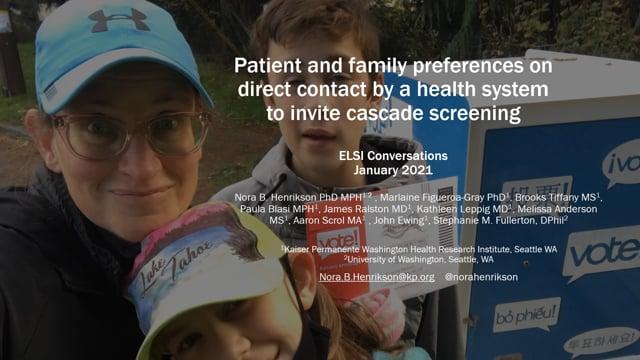
ELSIconversations 1: ELSIcon2020 - Patient and family preferences on direct contact by a health system to invite cascade screening
-
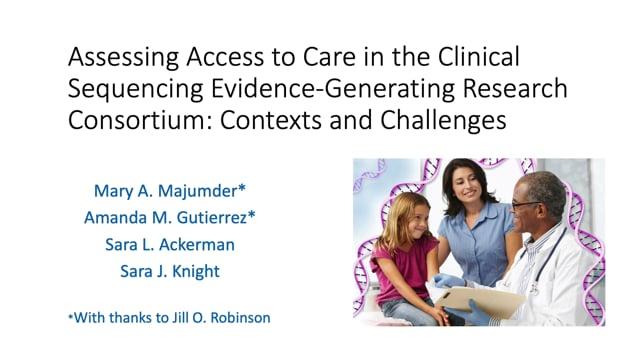
ELSIconversations 1: ELSIcon2020 - Part 1. Assessing Access to Care in the Clinical Sequencing Evidence-Generating Research Consortium: Contexts and Challenges
-
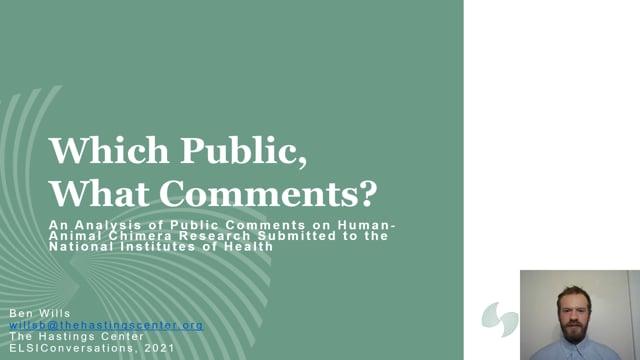
ELSIconversations 1: ELSIcon2020 - Which Public, What Comments? An Analysis of Public Comments on Human-Animal Chimera Research Submitted to the National Institutes of Health
-
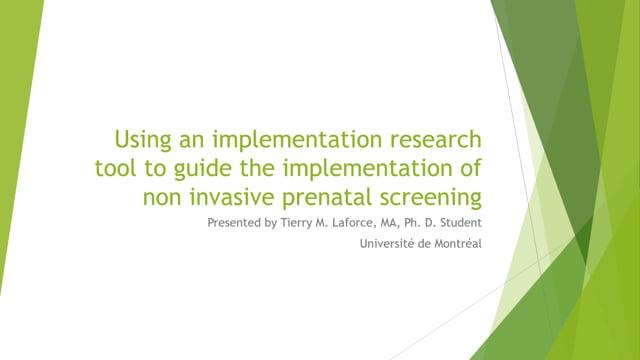
ELSIconversations 1: ELSIcon2020 - Using an implementation research tool to guide the implementation of non-invasive prenatal screening
-
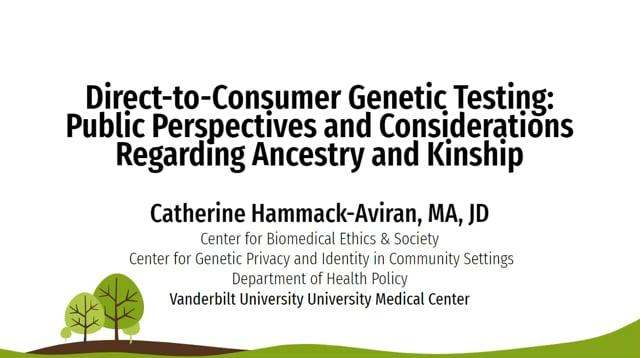
ELSIconversations 1: ELSIcon2020 - Direct-to-Consumer Genetic Testing: Public Perspectives and Considerations Regarding Ancestry and Kinship
-
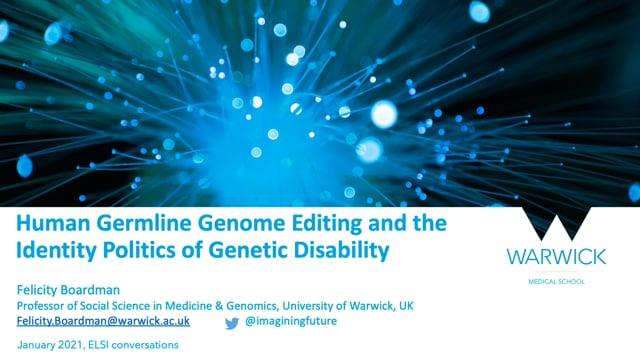
ELSIconversations 1: ELSIcon2020 - Human Germline Genome Editing and the Identity Politics of Genetic Disability
-
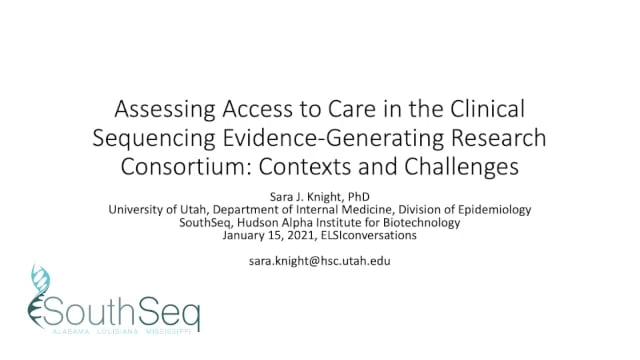
ELSIconversations 1: ELSIcon2020 - Part 4. Assessing Access to Care in the Clinical Sequencing Evidence-Generating Research Consortium: Contexts and Challenges
-
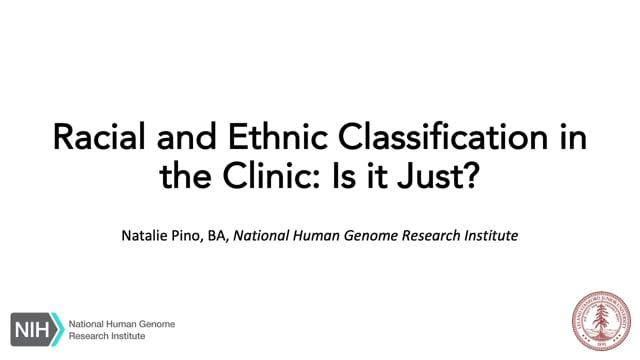
ELSIconversations 1: ELSIcon2020 - Racial and Ethnic Classification in the Clinic: Is it Just?
-
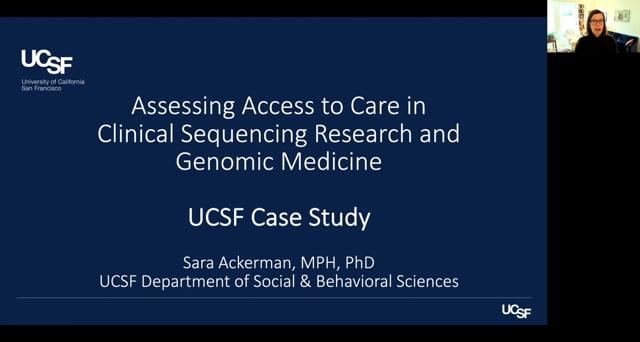
ELSIconversations 1: ELSIcon2020 - Part 3. Assessing Access to Care in the Clinical Sequencing Evidence-Generating Research Consortium: Contexts and Challenges

